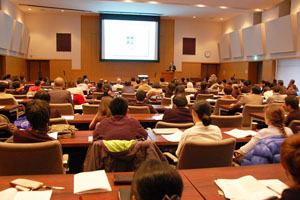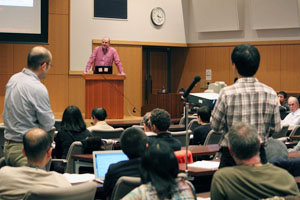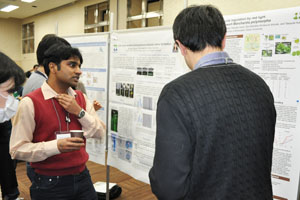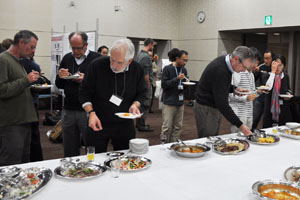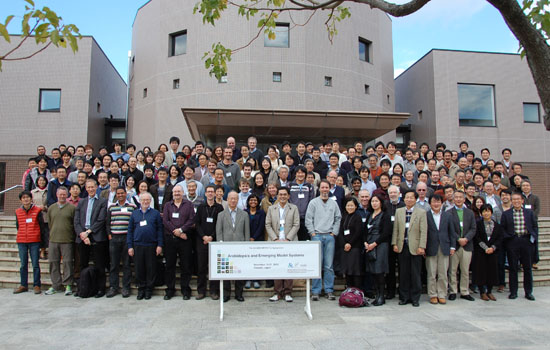
National Institute for Basic Biology

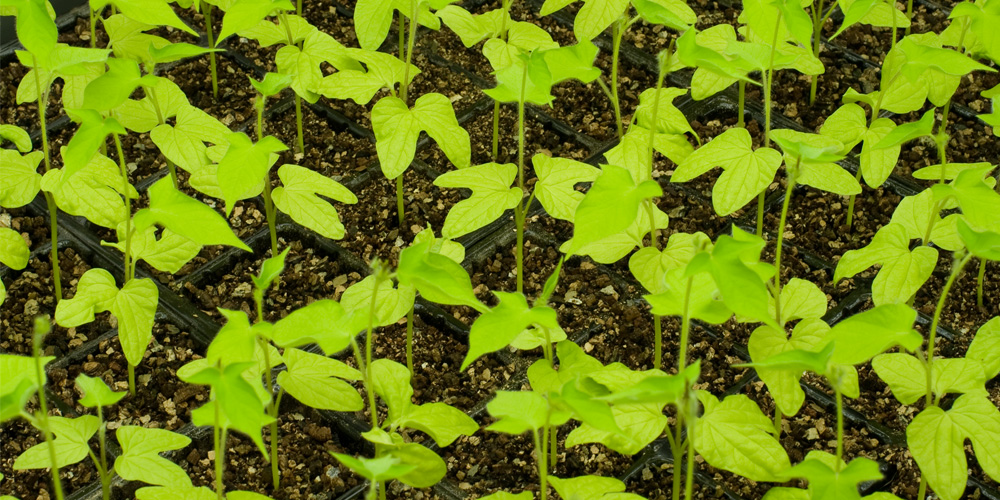


| Organizers | Masayoshi Kawaguchi(NIBB) Yoshikatsu Matsubayashi (NIBB) Kiyoshi Tatematsu (NIBB) Mitsuyasu Hasebe (NIBB) Mikio Nishimura (NIBB) |
|---|---|
| Venue | Okazaki Conference Center, Okazaki, Japan |
| Date | Nov. 19-21, 2012 |
| Link | http://www.nibb.ac.jp/joint2012/ (http://www.nibb.ac.jp/joint2012/) |
| Poster |
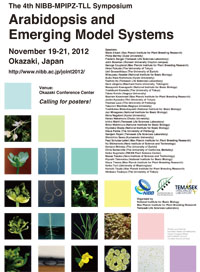
|
The National Institute for Basic Biology (NIBB), with the goal of advancing research and providing a venue for academic exchange, held the 4th NIBB-MPIPZ-TLL joint symposium from November 19th ~ November 21st 2012, at the Okazaki Conference Center in Okazaki City, Aichi Prefecture, Japan. This series of symposia began in Cologne in 2009, as a joint venture between NIBB and The Max Planck Institute for Plant Breeding Research (MPIPZ), with which NIBB has formed an academic exchange agreement, the Temasek Life Science Laboratory, which also entered into an academic exchange agreement with NIBB, later joined. The symposia are now being held in rotation between all three institutes. The theme for this year's conference was “Arabidopsis and Emerging Model Systems”. Arabidopsis is well known as an excellent model organism, playing a central role in the elucidation of the molecular mechanisms involved in development, physiology, environmental response, and other biological processes. For this year's symposium, we invited many researchers on the forefront of the field to present their research results and engage in lively discourse regarding their work. Notably, Okazaki is known as one of the founding centers of the Arabidopsis community in Japan. In 1990 and 1991, Dr. Kiyotaka Okada, (at the time, an assistant professor at the Dr. Yoshiro Shimura’s Lab of NIBB) planned and held the first and second workshops promoting Arabidopsis as a model organism in NIBB, after which its use within Japan rapidly expanded. However, just like the world of animals or microbes, the world of plants is quite diverse. Many biological phenomena remain which cannot be understood or elucidated through Arabidopsis, and even whether the insights into plant biology provided by Arabidopsis are universal remains unknown. In addition, with recent years bringing revolutions in next generation sequencer technology and genetic analysis techniques, new model lines continue to spring forth at a rapid pace. Thus, at this symposium, we also asked for the participation of researchers engaged in dynamic research utilizing new model plants such as Marchantia Polymorpha, seaweed, algae, or other experimental lines in order to further mutual understanding of research new and old. This year marks the final year of General Director Okada's tenure at NIBB, and a quarter century of his work in the field of plant biology. The symposium was a lively one, thanks not only to the researchers engaged in pushing forward the state of plant research while expanding the Arabidopsis community, but also thanks to the researchers connected to NIBB, and internationally active women researchers, who were kind enough to take part in this symposium. There was a total of 186 participants, with 67 poster presentations of new research, primarily featuring the work of younger researchers, on exhibit as well. With question and answer sessions running on into lengthy, animated discussions, the 4th NIBB-MPIPZ-TLL joint symposium was a wonderful experience for all.
Organizer: Masayoshi Kawaguchi (NIBB)
